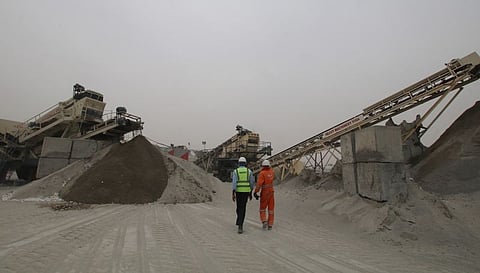Dubai to be landfill-free by 2027 under major waste-to-energy shift
Dubai's waste-to-energy plan to power 350,000 homes

Dubai has unveiled a plan to close all landfill sites by the end of 2027, positioning the emirate as one of the first in the region to eliminate traditional dumps entirely, Emarat Al Youm reported.
Dubai Municipality confirmed that five landfills have already been fully closed, with work underway to shut down the remaining two, Al Qusais and Bayada, as the city transitions to an integrated waste-to-energy and recycling infrastructure.
Also Read: Dubai to close all landfills by 2027
Waste-to-energy centre leads the transition
At the heart of this shift is the Dubai Waste-to-Energy Centre, launched last year and now one of the largest of its kind globally. The facility processes 6,000 tonnes of municipal solid waste daily—roughly half of Dubai’s total daily output of 13,000 tonnes. By converting waste into steam-powered electricity, it generates 200 megawatt-hours daily, enough to power 350,000 homes under an agreement with the Dubai Electricity and Water Authority.
A global benchmark in circular waste management
Adel Al Marzouqi, CEO of the Waste and Sewerage Agency at Dubai Municipality, described the centre as a “global benchmark.” He highlighted its scale, automation, and environmental efficiency, noting that the facility currently handles nearly 50% of the emirate’s waste and converts it into clean power through a closed-loop system that uses treated water to generate electricity.
Closing remaining landfills
Dubai has already shut sites in Warsan, Jebel Ali, and Hatta. With the closure of Al Qusais and Bayada, landfill dependency will end once new waste-to-energy plants and recycling hubs are fully operational. Al Marzouqi emphasized that Dubai has transformed a global challenge into an opportunity by deploying advanced thermal processing technologies to manage thousands of tonnes of waste daily.
Repurposing byproducts
The transition also focuses on turning incineration byproducts into useful materials. Bottom ash, the residue from burned waste, is already being repurposed through agreements with DP World and the Roads and Transport Authority for temporary road construction. Studies are underway to use the ash in interlock manufacturing, potentially saving government entities millions of dirhams annually by reducing the need for newly sourced materials.
A circular and sustainable model
Dubai’s circular-waste model ensures that trash collected from homes eventually returns as electricity powering those same homes, creating an economically efficient and environmentally forward-looking system. The waste-to-energy programme reflects Dubai’s broader commitment to sustainability and resource innovation, positioning the emirate as a regional leader in clean energy and modern waste management.
Sign up for the Daily Briefing
Get the latest news and updates straight to your inbox





